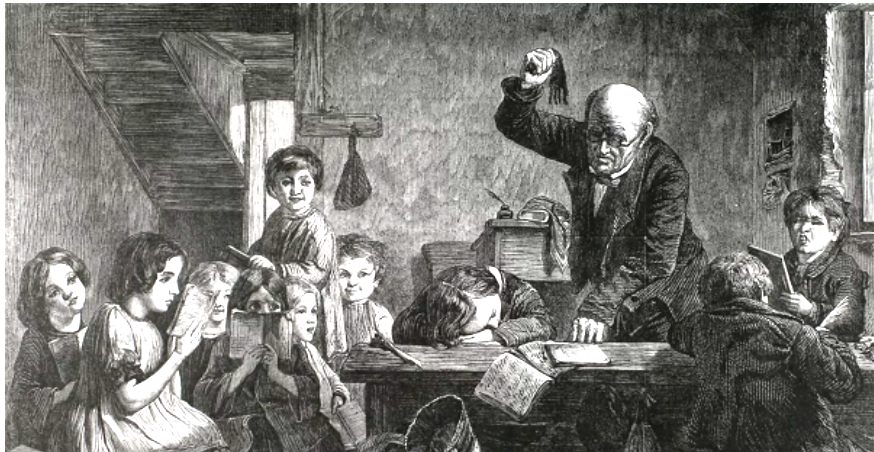Surprising revelations emerged this week as lawmakers in the Florida House expressed their lack of awareness regarding the continued use of corporal punishment in public schools. Nearly a third of school districts in the state still employ this controversial disciplinary practice. In response, a bipartisan proposal, spearheaded by Palm Beach Democrat Rep. Katherine Waldron, aims to restrict corporal punishment by requiring parental permission at the beginning of the school year.
Rather than an outright ban, Rep. Waldron’s proposal seeks to mandate that schools using corporal punishment obtain explicit consent from parents. Principals would be prohibited from administering physical discipline to students whose parents have not opted in or provided permission. The bill has already gained unanimous approval in its initial committee stop, reflecting a growing consensus for change.
Surprising Lack of Awareness and Bipartisan Support for Reform
Lawmakers, including Democratic Rep. Christopher Benjamin of Miami-Dade County, expressed astonishment at the ongoing practice. Rep. Benjamin highlighted the potential conflicts that could arise if parents were unaware of or disagreed with the use of corporal punishment on their children. While some lawmakers believe the bill does not go far enough and should lead to an outright ban, the bipartisan support indicates a shared concern for addressing this issue.
The identical Senate version of the proposal, however, is yet to be heard, leaving the fate of this reform hanging in the balance.

Read more:
- Diversity Prohibition in Texas Public Colleges: Effects on Students and Multicultural Organizations
- High School Athletes in Florida May Soon Benefit from NIL Opportunities
- Student Consequences Authorized for Supporting Hamas
- Student Loan Realities: The Shift from Pause to Panic for Borrowers
Proposal Overview: Parental Consent and Additional Protections
Rep. Waldron’s proposal not only addresses the issue of parental consent but also includes provisions to safeguard specific groups of students. The bill prohibits the use of physical force on students with disabilities and homeless students. Additionally, charter schools, considered public schools in Florida, would be required to comply with corporal punishment restrictions.
The surprising lack of awareness among lawmakers and the bipartisan support for reform indicate a shifting tide regarding corporal punishment in Florida’s public schools.
Florida’s Unique Position in the National Landscape
While Florida is not alone in the use of corporal punishment against students, the state’s practices are noteworthy. Only 27 states in the U.S. have explicitly banned corporal punishment, according to the latest analysis from the U.S. Department of Education Office for Civil Rights. The proposed reform reflects a nuanced approach, acknowledging the existing landscape while introducing measures to curtail and regulate the controversial disciplinary practice.
Corporal Punishment Statistics in Florida Schools
In the past decade, there has been a gradual decline in the use of corporal punishment in Florida schools. However, it remains far from obsolete, with 18 districts reporting 509 instances of physical force being used to discipline students in the previous school year, as per the Florida Department of Education. The decision on when and how students can be subjected to corporal punishment is typically at the discretion of school principals.
Instances of corporal punishment are concentrated in northern Florida counties such as Suwannee, Holmes, Columbia, and Calhoun, shedding light on regional disparities in disciplinary approaches.
Debates Within the Legislature: Protecting Students with Disabilities
While the proposal gained bipartisan support, some House Republicans voiced concerns about restricting corporal punishment for students with individual education plans (IEPs), indicating diverse perspectives on the issue. Rep. Brad Yeager highlighted his reservations, citing his son’s IEP but asserting that it did not affect his behavior. In response, Rep. Waldron emphasized that the IEP provision aims to protect students with disabilities who may have difficulty controlling their behavior.
In the 2020-2021 school year, school officials reported physically disciplining 200 students with disabilities, further underscoring the need for targeted protections.
Call for a Comprehensive Ban and Reflection on Legislative Priorities
Despite bipartisan backing for the proposal, some lawmakers, including Rep. Mike Beltran of Hillsborough and Manatee, expressed the view that corporal punishment should be banned completely. Reflecting on the legislative process, Rep. Beltran criticized the arbitrary nature of allowing school officials to administer physical discipline while individuals sentenced by a judge are not subjected to such measures.
The bill’s sponsor, Rep. Waldron, credited University of Florida students for bringing attention to the issue and pushing lawmakers to address it. The evolving discourse within the legislature indicates a growing awareness of the complexities surrounding corporal punishment in schools.
Conclusion: Shaping the Future of Disciplinary Practices
As Florida grapples with the ongoing use of corporal punishment, lawmakers are at a crossroads, contemplating the need for reform and a reevaluation of disciplinary practices within the education system. The proposal from Rep. Waldron signifies a crucial step towards balancing the rights of parents, the well-being of students, and the responsibility of schools to provide a safe and conducive learning environment. The coming weeks will unveil whether Florida chooses to align itself with the states that have unequivocally banned corporal punishment or continues to navigate a nuanced path of reform.















+ There are no comments
Add yours